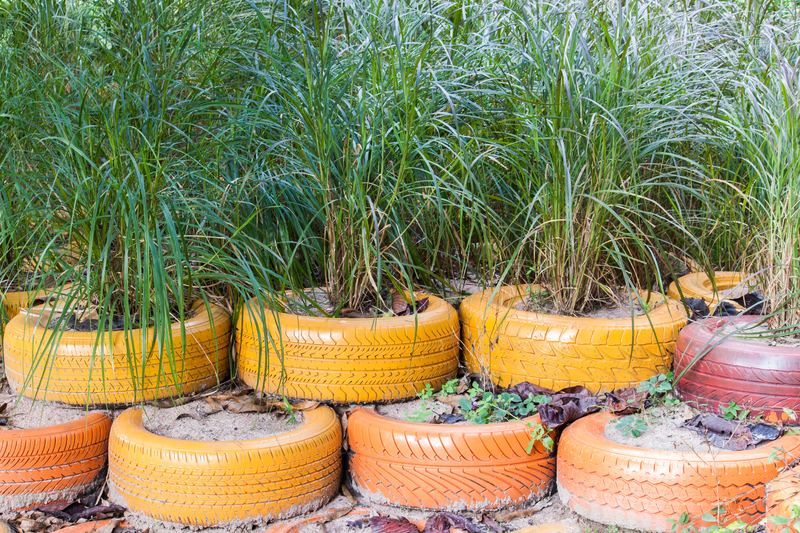Innovative Hard Rubbish Disposal Solutions: A Comprehensive Guide
As urban spaces continue to grow, the challenge of effectively managing hard rubbish becomes increasingly pressing. Conventional methods of disposal are often inadequate, environmentally unfriendly, or simply unsustainable. This has led to the development of various innovative hard rubbish disposal solutions designed to tackle this issue head-on. This article explores some cutting-edge methods and concepts that are changing the face of waste management.
Why Innovation in Hard Waste Disposal is Crucial
Hard rubbish, also known as bulk waste, consists of large, unwanted items such as furniture, appliances, and other bulky trash components. Traditional disposal methods like landfills pose numerous challenges, including excessive space consumption and environmental pollution. There is an urgent need for sustainable and innovative approaches to efficiently manage and dispose of hard waste.
Novel Technologies Transforming Rubbish Disposal
Smart Waste Bins
Utilizing the Internet of Things (IoT) technology, smart waste bins are becoming a cornerstone of modern waste management. These bins are equipped with sensors that monitor fill levels and send notifications when collection is necessary, optimizing pickup routes and reducing unnecessary transportation emissions. The use of smart bins ensures that waste is collected efficiently, minimizing environmental impact.
Automated Sorting Systems
Automated sorting technologies have transformed how we deal with hard rubbish. With systems that can distinguish materials based on artificial intelligence and machine vision, it's now possible to separate recyclable materials from waste automatically. This innovation not only streamlines the recycling process but also increases the volume of waste that can be recycled.
Sustainable and Green Solutions
Upcycling and Creative Reuse
Upcycling, or the process of converting waste materials into new products of better quality or environmental value, is a vital component of modern rubbish disposal strategies. Instead of discarding hard waste, businesses and individuals are finding ways to transform it into functional or artistic items. This approach not only reduces the volume of waste sent to landfills but also fosters creativity and environmental responsibility.
Circular Economy Approaches
The circular economy model is focused on designing out waste and pollution by keeping products and materials in use. In hard waste disposal, this means extending the lifecycle of products through repair, refurbishment, and remanufacture. Encouraging the development of take-back schemes and promoting products designed with end-of-life disposal in mind are crucial steps toward sustainable waste management.
Community-Centric Solutions
Peer-to-Peer Sharing Platforms
Technology has enabled the rise of peer-to-peer sharing platforms that facilitate the exchange or sale of unwanted items directly between users. By providing an online marketplace for used goods, these platforms extend the life of items and reduce the quantity of hard rubbish produced. This sharing model not only benefits the environment but also encourages community engagement and resource sharing.
Local Community Drives and Swaps
Community-led initiatives, such as waste collection drives and swap meets, offer practical and social ways to manage hard waste. These events encourage residents to bring their unwanted bulk items for recycling, donation, or exchange, fostering a sense of responsibility and cooperation among community members. Additionally, education programs during these events can raise awareness about proper disposal practices and recycling.
The Role of Policy and Regulation in Hard Rubbish Disposal
Innovative disposal solutions require supportive policy frameworks to thrive. Governments play a critical role in facilitating the transition toward sustainable waste management by enacting stringent regulations on hard waste disposal and supporting innovation in the field. Policies that incentivize recycling and the use of sustainable materials, along with penalties for improper disposal, can accelerate the adoption of new technologies and practices.
Conclusion: A Bright New Era in Waste Management
The future of hard rubbish disposal lies in embracing innovation, technology, and community involvement. By integrating smart technologies, sustainable practices, and robust policy frameworks, we can drastically reduce the environmental impact of hard waste. As these solutions become more widely adopted, we move closer to a more sustainable, eco-friendly future.
Adopting innovative hard rubbish disposal solutions not only benefits the environment but also enhances quality of life by fostering cleaner, healthier urban spaces for current and future generations.
- Sustainable innovation is key to effective rubbish management.
- Community initiatives play a crucial role in reducing waste.
- Policy and regulation support is essential for broader adoption.
In this interconnected world, the responsibility for managing hard waste is shared by individuals, communities, and governments. By working together, we can create more effective strategies and innovative methods for waste disposal, paving the way for a cleaner, more sustainable planet.

